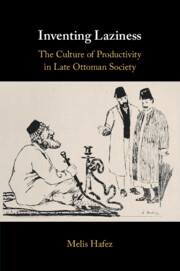
- Cited by 1
-
Cited byCrossref Citations
This Book has been cited by the following publications. This list is generated based on data provided by Crossref.
Tunç Yaşar, Fatma and Ayas, Onur Güneş 2024. Early Acquaintances with Modern Mass Culture in Late Ottoman Istanbul: The Experiences of Child Audiences at Direklerarası. Sociology Lens, Vol. 37, Issue. 1, p. 8.
- Publisher:
- Cambridge University Press
- Online publication date:
- December 2021
- Print publication year:
- 2021
- Online ISBN:
- 9781108551922




